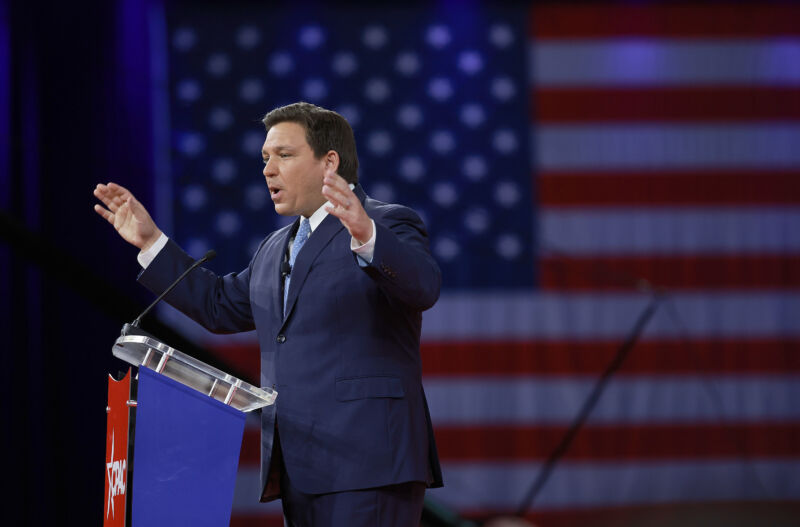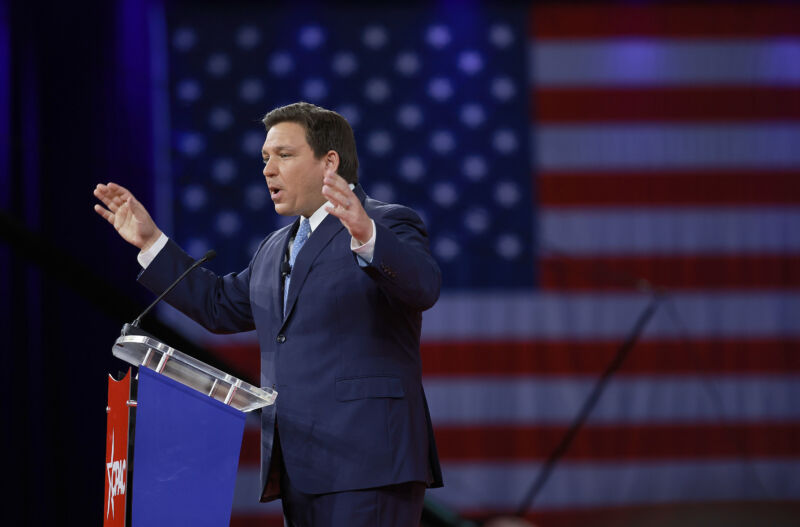
Enlarge / Florida Gov. Ron DeSantis speaks at the Conservative Political Action Conference (CPAC) at the Rosen Shingle Creek on February 24, 2022, in Orlando, Florida. (credit: Getty| Joe Raedle)
Sometimes fighting a common enemy can unite a country, inspiring solidarity, bravery, and sacrifice. Ordinary citizens become heroes; leaders become icons. But sometimes—like in the United States right now—a common enemy wins by exploiting divisions.
As the US faced down a global viral threat two years ago, its people and leaders couldn’t seem more factious and impotent against a shared foe. Most Americans seemed to embrace the evolving consensus of public health experts, heeding advice to follow basic and simple measures, like getting a safe and effective vaccine and wearing a mask. These measures might otherwise seem uncontroversial and like minor inconveniences. A vocal minority of Americans, however, leaned hard in the opposite direction, claiming that joining the fight against a deadly enemy infringed on their freedom—as if the US Constitution enshrined the right to freely spread disease and suffering to family, friends, and fellow Americans.
Two years later, the US has tallied nearly 80 million cases. Nearly 960,000 people—grandparents, parents, siblings, children, infants, precious loved ones all—are dead. Nine hundred and sixty thousand. It’s an unfathomable loss—a toll one might at least hope would stir reconsideration in those not fighting for the greater good. Yet, here we are two years and nearly 1 million deaths later, and many have not changed their positions. Some Americans still deny the devastating realities of the pandemic. Some spread dangerous misinformation, twist facts, and squabble over trivial points as lives hang in the balance.





